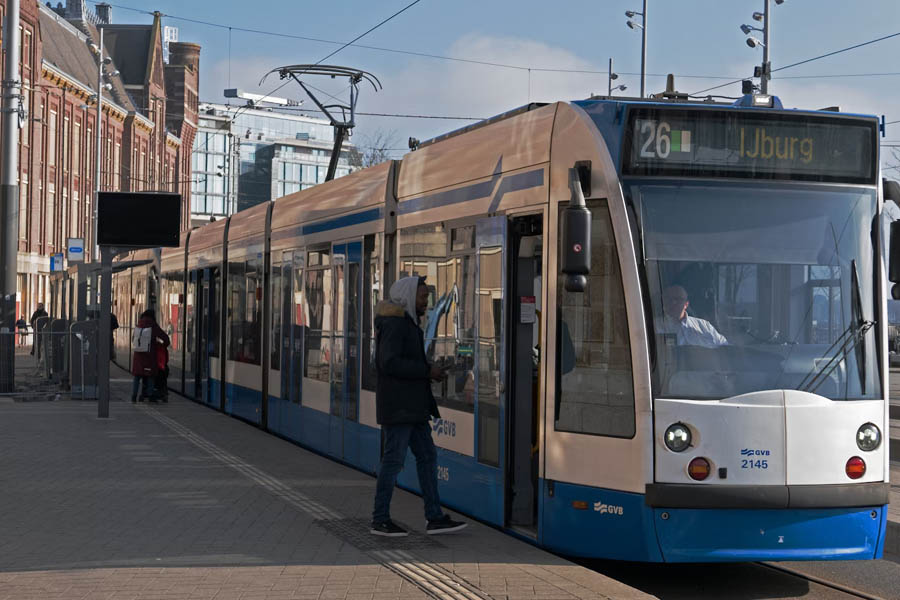
Streets of Amsterdam, where rush hour traffic flows like a river, nearly half of the workforce represents a growing trend – part-time employment. The Netherlands stands out as Europe's capital of part-time work, with approximately one out of every two workers embracing reduced hours. But this phenomenon isn't unique to the Dutch; countries like Portugal, Germany, Austria, and Switzerland are witnessing similar shifts in their labor landscapes. As more people opt for part-time work, governments and employers are grappling with labor shortages and shrinking workforces. The question arises: Can they entice workers to increase their hours and address the impending crisis?
Helena Swift: Embracing Flexibility in Amsterdam's Workforce
In the bustling streets of Amsterdam, Helena Swift navigates the rhythm of part-time employment with finesse. Amidst rush hour traffic resembling a flowing river, Helena represents a growing trend in the Dutch workforce – part-time employment. As she cycles through the city's vibrant lanes, Helena embraces the flexibility that comes with working reduced hours.
Originally from the UK, Helena moved to Amsterdam seeking a better work-life balance. She found that the Netherlands stood out as Europe's capital of part-time work, with nearly half of the workforce opting for reduced hours. For Helena, part-time employment allows her to pursue her career ambitions while also dedicating time to her passion for painting.
Helena's journey reflects the changing face of work in Europe. Decades ago, the traditional household model depicted one partner working full-time while the other managed domestic responsibilities. However, societal changes have reshaped this narrative, with part-time work emerging as a solution for individuals seeking flexibility, particularly women balancing career aspirations with caregiving duties.
While part-time work offers Helena the freedom to pursue her interests, she acknowledges the challenges it presents. Lower incomes and limited career progression are hurdles she faces, primarily affecting women in the workforce. Despite these challenges, Helena remains committed to her one-and-a-half earner household model, finding fulfillment in both her professional and personal pursuits.
Robert Hilfman: Navigating Labor Shortages in Portugal's Workforce
Meanwhile, in the tranquil landscapes of Portugal, Robert Hilfman grapples with labor shortages plaguing the country's workforce. As the owner of a small business in Lisbon, Robert faces the daunting task of finding skilled workers to meet growing demands. With an aging population and a declining working-age demographic, Portugal, like many European countries, is confronted with the challenge of sustaining economic growth amidst labor shortages.
Robert recognizes the need to entice workers to increase their hours to address the impending crisis. However, cultural norms and financial considerations influence workers' preferences, posing challenges to efforts aimed at promoting full-time employment. In sectors like education and healthcare, acute shortages impact service delivery and quality, further exacerbating the issue.
Despite these challenges, Robert remains optimistic about navigating the future of work in Portugal. By fostering a supportive workplace culture and offering flexible work arrangements, he believes businesses can attract and retain talent in a competitive labor market. Moreover, initiatives aimed at promoting childcare options and revising tax policies can contribute to addressing labor shortages and ensuring economic resilience in the years ahead.
As Europe grapples with evolving workforce dynamics and demographic shifts, individuals like Helena and Robert embody the resilience and adaptability needed to navigate the changing labor landscape. Through collaboration between policymakers, employers, and workers, Europe can strive towards a sustainable future where flexibility and productivity go hand in hand.
Message To The Readers:
Rise of Part-Time Work: Europe is experiencing a significant rise in part-time employment, with countries like the Netherlands, Portugal, Germany, Austria, and Switzerland witnessing a substantial portion of their workforce opting for reduced hours. This trend, initially aimed at accommodating women's increased participation in the workforce, has become a widespread phenomenon, reshaping traditional household and employment dynamics.
Challenges of Part-Time Work: While part-time work offers flexibility and work-life balance, it presents challenges such as lower incomes and limited career progression, particularly affecting women. Moreover, the prevalence of part-time employment contributes to reduced working hours per person, exacerbating labor shortages in an aging population and posing long-term challenges for sustaining economic growth.
Implications for Labor Shortages: As Europe's workforce ages, the number of working-age individuals is projected to decline significantly, leading to acute shortages in sectors like education and healthcare. Efforts to incentivize full-time employment face resistance due to cultural norms, financial considerations, and sector-specific challenges, necessitating innovative strategies to address labor shortages and ensure service quality.
Navigating the Future of Work: Governments and employers are exploring strategies to address labor shortages and encourage full-time employment, including promoting childcare options, revising tax policies, and offering flexible work arrangements. Collaboration between policymakers, employers, and workers is crucial in shaping a sustainable labor landscape that balances flexibility and productivity while prioritizing employee well-being and economic resilience.
Thank you for reading: globalpostheadline.com | If you want to advertise your Company, Events, Movies, Products, Hotels, Travel Packages Let us know